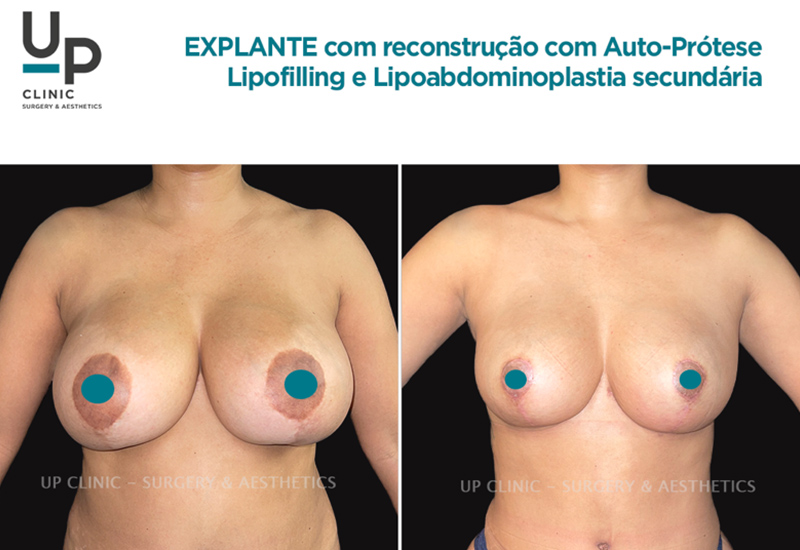In 2022, over 2.1 million breast augmentations were performed in countries that provide statistics, which represents an increase of almost 30% related to 2021 and 16.8% when compared with five years ago (2018).
While breast surgery improves self-confidence and therefore lifestyle, it is important to know that silicone implants are not lifelong solutions. It’s only a matter of time until their replacement or removal is necessary. Normally, women exchange them between 10 to 15 years after the previous surgery.

With the rise in the number of surgeries, there will be a higher number of implant removals. The main reasons for breast surgery are:
- Complications related to the implant
- Tissues ageing (sagging) with time, weight shifts, pregnancy
- Systemic complaints and diseases related to ASIA syndrome – immunological reaction – fatigue, arthralgias, myalgias, dry eyes and dry mouth
- Women who don’t want to undergo another replacement in the next 10/15 years
The reason for the surgery rather than replacement has to be well discussed with the surgeon because it’s not a simple decision. Patients have to be aware that together with the advantages of having no more implants to deal with come some disadvantages:
- The perfection of the result is not going to be the same (tissues have scars inside, and the elasticity is compromised
- Secondary revisions are more likely because of irregularities
- The volume and shape are going to be less beautiful than after the initial surgery techniques mentioned above
Removal surgeries include:
- Simple breast implant removal
- Implant removal with partial capsulectomy
- Total capsulectomy
- Total capsulectomy em bloc (a method of breast implant removal that removes the scar tissue capsule and the breast implant all at once, without opening the capsule)
Reconstruction:
- Combination of explantation and mastopexy (breast lift, with areola correction)
- Lipo-filling
The satisfaction rate is very high because the complaints that led patients to the surgery are now gone, and small irregularities and asymmetries are accepted easily.
Surgery time varies between 1h to 4hs, with ambulatory surgery. Recovery time is normally considered to be 10 to 15 days.
Tiago Baptista-Fernandes is a specialist in plastic surgery.
tiago.baptistafernandes@upclinic.pt
+351 213 150 201
+351 925 227 377














